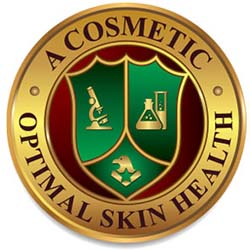While sometimes journalists can get carried away with the beneficial properties of antioxidants, the facts don’t lie. Fact one: research indicates that inflammation is a key cause of acne, blocking pores which can cause pimples.. Fact two: oxidative stress, a chemical process caused by molecules called free radicals, damages the skin cells causing all manner of skin conditions. Dark spots, destruction of healing collagen, weakening the skin’s natural elasticity, even harming your DNA. These free radicals are generated by all sources of UV light, including sunshine and tanning beds, as well as pollutants like car fumes, tobacco and marijuana smoke. Fact three: oxidative stress is also responsible for inflammation. Fact four: antioxidants are doubly effective against acne breakouts, as they are effective in neutralizing the effect of free radicals but also facilitating the repair of the inflamed skin. However, antioxidants are not the silver bullet to all forms of acne. There are some types, such as hormonal acne, which will flare up periodically. Good skin care and use of antioxidants can ameliorate but not entirely prevent this damage.
Vitamin C, also known as L-ascorbic acid, is one antioxidant that is prized for its anti-inflammatory properties. It is known to have additional skin benefits. For example, it promotes collagen production, reduces fine lines, and can thicken the dermis (the living tissue beneath the top layer of skin). Over time, it can even lighten hyperpigmentation and dark spots, as well as brightening your general complexion.
Vitamin A (or its concentrated form, retinol) is popular because it levels skin in many ways, as well as being effective at reducing acne. It smooths fine lines, fills in wrinkles, softens bumps and rough patches, and fades scars and dark marks. It can even help with hormonal cystic acne, which can often be resistant to typical antioxidants. However, it can cause severe dryness and flaky skin until the skin adjusts to it. It can even trigger breakouts in response. Carefully consider if you are combining retinol with vitamin C based antioxidants. Those with sensitive skin can find the combination especially aggravating.
Another popular antioxidant vitamin is vitamin E, or tocopherol. The body naturally distributes vitamin E to the surface of the skin via sebum (skin oil) because of its utility in preventing damage caused by free radicals and reactive oxygen species (ROS). These highly reactive chemicals cause similar kinds of damage to free radicals. Notably, vitamin E is less effective in preventing sun damage, since it cannot absorb most varieties of UV light. It stands out as a strong antioxidant in terms of moisturizing. However, it’s best used in combination with other antioxidants, such as vitamin C.
Vitamin B3 is also known as niacinamide, found in many types of food such as meat. Topical application of niacinamide improves skin’s hydration, reduces lines, dark spots, and wrinkles. It can also ease inflammation and restore elasticity. Some sunscreens are known to use it. Another B vitamin that exhibits antioxidant qualities is vitamin B5. Pantothenic acid, as it is also called, possesses moisturizing, rejuvenating, and soothing properties. On topical application to the skin, it has been seen to promote skin hydration, reinforce and accelerate rejuvenation of the skin barrier, and reduce damage on the skin’s surface that contributes to irritation.
However, it’s not just vitamins that possess beneficial antioxidant qualities. Did you know that green tea is an antioxidant-rich beverage? The active ingredients of green tea extract, called polyphenols, possess multiple antioxidant effects. They can reduce inflammation, work against carcinogens, and prevent collagen from breaking down. Green tea is prized for its suitability for sensitive skin, since it is excellent at reducing redness and fighting inflammation.
Another type of polyphenol can be found in turmeric root. Curcumin, as it’s called, is excellent at fighting inflammation, protects against sun damage, and has anti-aging and anti-microbial properties. It also accelerates wound healing. Because of its bright color, many beneficial properties, and ease of access, turmeric face masks (often mixed with honey and Greek yogurt) are popular, especially on social media.





